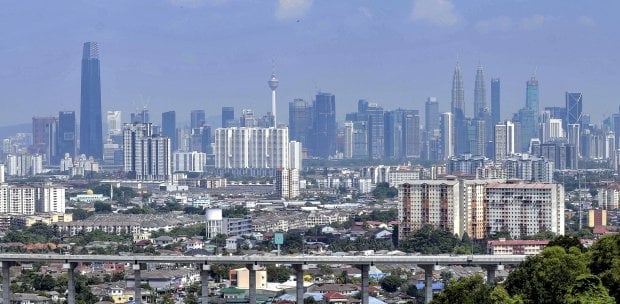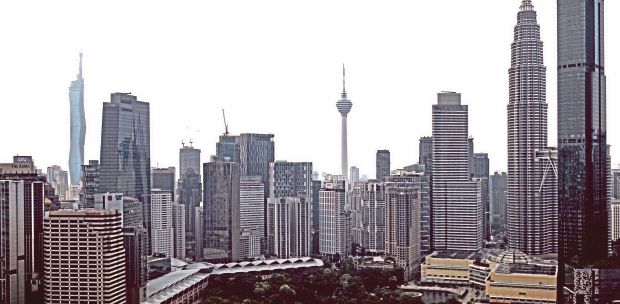In the intricate dance of modern development, societies find themselves walking a precarious tightrope between the imperatives of economic growth and the urgent need for environmental conservation.
This delicate balancing act, reminiscent of the nuanced acrobatics of a seasoned juggler, is essential for charting alternative pathways that harmonise progress with the preservation of our planet.
In the pursuit of economic growth, nations often tread a well-worn path paved with industrialisation, resource extraction, and relentless consumption. Yet, this trajectory is not sustainable in the long term. The environmental toll exacted by unchecked development threatens to unravel the very fabric of our ecosystems, jeopardising not only the well-being of current generations but also the prospects of those yet to come.
The challenge, then, lies in reimagining development paradigms that transcend the false dichotomy between growth and environmental protection. It is here that the art of juggling comes into play, requiring a deft hand to balance the competing demands of prosperity and planetary health.
One avenue towards this alternative pathway involves harnessing the power of innovation and technological advancement to decouple economic growth from environmental degradation. By investing in clean energy, sustainable agriculture, and circular economies, nations can foster prosperity while mitigating their ecological footprint. This approach not only offers a pragmatic solution to the pressing threat of climate change but also cultivates new avenues for economic dynamism and job creation.
Moreover, the transition towards greener development pathways necessitates a fundamental shift in our collective mindset. Just as a skilled juggler adapts their technique to maintain equilibrium amidst shifting circumstances, societies must cultivate a culture of sustainability and responsibility. This entails fostering environmental literacy, promoting green entrepreneurship, and enacting policies that incentivise responsible consumption and production.
At the crossroads
Mankind is facing a dilemma because we need material resources to survive, yet the industrial economic approach to providing these resources has resulted in serious damage to the environment and thus to the very resources needed for our survival.
Mohandas Gandhi, thought of excess consumption as thievery. If we take more than is necessary for own needs, he believed, we take it from others.
In Hind Swaraj he described the quest for material goods and the endless multiplication of wants as "Satanic." If India were to follow the industrialism and economic imperialism of the West, he warned, it would "strip the world bare like locusts."
Fortunately, there may be a way out of this dilemma: the adoption of an approach called "preventive environmental management." This approach reduces the costs associated with pollution, and thus helps increase, not undermine, corporate profits.
There should also be a shift to a "service economy," in contrast to the current emphasis on the production of material goods.
Industrial pollution results in undesirable costs, not only in terms of environmental destruction, but also in terms of clean-ups and damage to human health.
For the human species to continue to survive, it is necessary to break the "stalemate" that exists between demands for economic growth and environmental protection.
Unfortunately, there are no easy solutions to this complicated problem.
Tim Jackson, in his book Material Concerns, recommends a radical approach that calls for the "dematerialisation" of the economy. The central element in this approach is a process known as preventive environmental management, which involves efforts to reduce the use of environmental resources.
It seeks to prevent pollution rather than resort to the costly methods of trying to clean up pollution. Essentially, pollution clean-ups are not only costly, but also generally ineffective.
The other major component of Jackson's proposed solution is a switch from the existing goods-based economy to a system with more emphasis on the provision of services. This would be a more environmentally friendly way for corporations to attain economic profits.
Although these services require material inputs and outputs, the incentive to increase material throughput is transformed – via the commercial innovations of the service economy – into a continuing drive for material efficiency.
The service economy approach seems to be an efficient way to help consumers fulfil their material and non-material needs. Jackson provides some practical ideas for how economic and environmental demands can be reconciled.
The main drawback is that it will be very difficult to make such changes in the existing system, which has become strongly ingrained over the centuries during which it has developed.
Changing the economic system will require the participation of humanity as a whole. In order for positive changes to occur, everyone needs to understand the consequences of the existing system and be willing to do their individual part in transforming it.
All areas of our accustomed way of life (politics, business, etc) need to be involved
in making the changes. Certainly the government must play a particularly important role in this process.
We can expect to encounter many obstacles in the effort to get industrial corporations to change their ways. Perhaps we could not expect corporate leaders to act aggressively to change the existing system, because of their vested interest in it.
And certain types of industries will be harder to change than others. Obviously, those who profit the most from the existing system will be the ones who will be most resistant to change.
The Government also needs to create regulations and provide incentives in order to motivate corporations and individuals to change. The role of the consumer must not be overlooked in the effort to bring about change. Industries and corporations do what they do because they are trying to meet the demands of consumers.
We must place upon the consumer at least some of the responsibility for making the economy sustainable.
Humankind is not necessarily stuck with the existing system; the emphasis on material throughput is a contingent aspect of a particular historical development.
There is more than one way that basic human needs can be satisfied.
Throughout history, different cultures have adapted different ways of meeting these needs. In the developed industrial economy the dominant way is a very specific development path characterised by the system of production and consumption.
Alternative approaches do exist, and it is possible for people to change from the use of one system to the use of another.
The effort to create a new reality in which the economy and the environment work together in harmony will be an extremely challenging one. Yet, this is an urgent issue which cannot be ignored or put off for too long, despite the difficulties. At stake is the health of the planet and, ultimately, the survival of the human species.
The way forward
However, the journey towards sustainable development is fraught with challenges and trade-offs. As nations seek to balance economic imperatives withenvironmental concerns, they must navigate a complex terrain of vested interests,political inertia, and competing priorities. The task is akin to walking a tightrope,requiring unwavering focus, agility, and coordination.
Yet, amid the daunting complexity of the task at hand, there is cause for optimism.
The rise of global movements for climate action, the proliferation of renewable technologies, and the growing awareness of environmental stewardship signal a shifting tide towards a more sustainable future. By embracing innovation, collaboration, and a shared commitment to our planet, we can chart alternative pathways that not only foster economic prosperity but also safeguard the precious ecosystems upon which all life depends.
In the end, the journey towards a sustainable future is not a destination but a continual process of adaptation and renewal. Just as the juggler must constantly adjust their movements to maintain balance, so too must societies evolve and innovate in response to the ever-changing dynamics of our planet. In this ongoing dance between growth and environmental protection, the key lies not in choosing one over the other but in finding the delicate equilibrium that sustains both.
*The writer currently serves as a Senior Consultant at Global Asia Consulting (GAC) and has a background as a senior researcher at the Malaysian Institute of Economic Research. The viewpoints articulated are solely those of the author.





